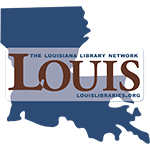Intro to Philosophy
Topic outline
-
Welcome to Introduction to Philosophy!
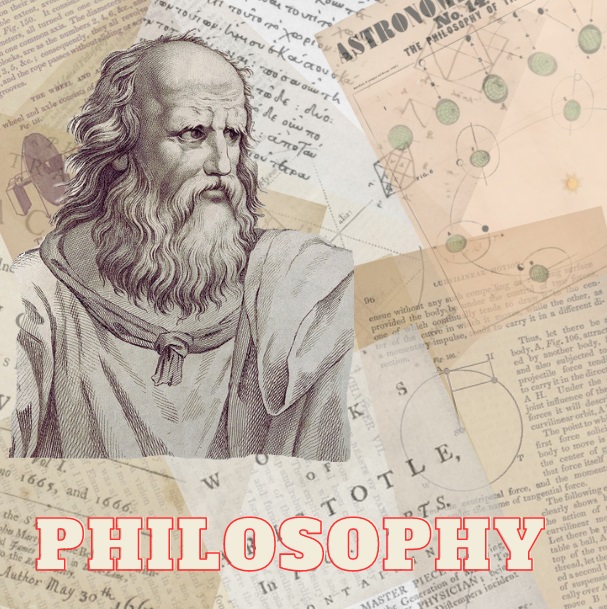
(Original Image created by Peter Klubek CC-BY)
Course Introduction
Introduction to Philosophy presents the student with an opportunity to engage in a guided philosophical examination of the different questions, texts and concepts developed by thinkers from both Western and Non-Western cultures. The student reads primary works of philosophy and engages in thoughtful discussion about the ideas raised by and in these works. Students complete examinations, quizzes, and assignments, and engage in class discussion. All in-class and out-of-class activities focus on elevating the student’s critical ability to read philosophical texts, comprehend concepts and conceptual frameworks, and apply the ideas we study to their self-understanding, understanding of the other, and understanding of the world.
In this class you will learn about the different ways that people from a variety of cultures and historical contexts have responded to perennial problems and how those responses have sculpted our contemporary situation.
Upon successful completion of this course, the student will be able to:Through the close study of a selection of philosophers and thinkers, you will be able to identify and evaluate some of the processes and critical debates that have sculpted human history With this knowledge you will be able to situate your thinking—and the thinking of others—in a philosophically-informed context.
As you complete this course you will demonstrate your critical thinking acumen by completing writing activities and other assignments.
You will be assessed on your ability to effectively communicate your identification, analysis, and evaluations of arguments and truth-claims.
You will discover and address personal biases by presenting convincing reasons and support for the conclusions you’ve drawn from class-related activities.
Structure of the Course
The course is has 16 weeks. The individual assignments are at the discretion of your instructor. Most modules have a paper or assignment associated with that learning section. These assignments are about every two to three weeks.
Navigating the Course
Introduction to Philosophy is an opening level study of 'the art of thinking' through the ages, with readings that span from Plato to modern times. The course is divided into a 16-week semester, with readings covering a two-week section. The learning should be culminating and build from week-to-week.
This course is set up in Modules covering various topics which may be accessed from the course navigation menu on the left or by scrolling below. Modules may be collapsed in the menu and it the body of the course to minimize scrolling. Each module includes the relevant chapters followed by various activities, which may include discussion forums, listening activities and quizzes, practice quizzes, module tests, and other relevant activities as appropriate for each module. Many items are required and may be marked as completed automatically when the activity has been submitted (the broken check box), but others will marked as done by the student (the solid check box).Please move through the items below and continue through the Learner Support and Getting Started modules before moving on to Module 1. Be sure to check for announcements and due dates to stay on track. This course and its contents are licensed under a Creative Commons Attribution 4.0 International License by LOUIS: The Louisiana Library Network, except where otherwise noted. Created and edited by Marco Altamarino, Ryland Johnson, Peter Klubek, and Michael Martin -
Introduction to Philosophy
Instructor:
Phone:
Email:
Office Hours:
Course Communication
If you’d like to discuss matters with your instructor outside of class meeting times, the best way to reach them is through the email address listed above.
Electronic Communications
Your school or university provides all students with an “official” email account. To better protect your educational information and other data, this is the sole email account you should use to communicate with your instructor or other university officials.
PLEASE NOTE: Exams and assignments must be submitted through appropriate channels. Exams and assignments submitted electronically without authorization may not be accepted.
Course Description
Introduction to Philosophy presents the student with an opportunity to engage in a guided philosophical examination of the different questions, texts and concepts developed by thinkers from both Western and Non-Western cultures. The student reads primary works of philosophy and engages in thoughtful discussion about the ideas raised by and in these works. Students complete examinations, quizzes, and assignments, and engage in class discussion. All in-class and out-of-class activities focus on elevating the student’s critical ability to read philosophical texts, comprehend concepts and conceptual frameworks, and apply the ideas we study to their self-understanding, understanding of the other, and understanding of the world.
In this class you will learn about the different ways that people from a variety of cultures and historical contexts have responded to perennial problems and how those responses have sculpted our contemporary situation.
Learning Objectives
Through the close study of a selection of philosophers and thinkers, you will be able to identify and
evaluate some of the processes and critical debates that have sculpted human history.
With this knowledge you will be able to situate your thinking—and the thinking of others—in a
philosophically-informed context.
As you complete this course you will demonstrate your critical thinking acumen by completing writing activities and other assignments.
You will be assessed on your ability to effectively communicate your identification, analysis, and
evaluations of arguments and truth-claims.
You will discover and address personal biases by presenting convincing reasons and support for the conclusions you’ve drawn from class-related activities.
Grading:
Final exam: 25%
Midterm: 20%
Discussion board: 25%
Quizzes: 20%
Various writings: 5%
Required Texts
There is no text that you need to purchase or acquire for this course. We will be using open educational resources (OER) that will be available to you through links and PDfs on our course Moodle page.
The primary text that we will be using is
Recommended Supplemental Resources
Evaluation
The student will demonstrate performative competence in communicating (through writing and speaking) their understanding of the course material. The student should understand that this course is reading intensive, and that such competence as above is achieved in direct relation to the texts in question.
PLEASE NOTE: Reading and writing are difficult tasks. It is difficult to find the appropriate terms or phrases to effectively communicate what we intend. Sometimes, reading is slow and arduous, especially as we read historic and philosophical texts. These are difficulties we face at every stage in our academic journey. It’s normal and okay for philosophy to be hard. It’s also normal to not understand everything in a text.
This class is designed to support you as you hone your reading, writing, and thinking habits.
Your instructor will evaluate you by assessing the clarity of the arguments you put forward and the evidence you provide to support those arguments in your writing.
Examinations and assignments should be grammatically correct, free of careless errors, and reflect both the student’s concern for his/her work and the seriousness of the topic in question.
Due dates for all exams and assignments are firm. Students are encouraged to communicate with their instructor ASAP in the event of emergency, or if the student encounters a significant barrier to success in this course. It is the student’s responsibility to communicate with the instructor.
All course work must be typed and submitted via appropriate channels. Handwritten assignments will not be accepted.
The student must complete and turn in all exams in order to receive credit for the course.
Essay Examinations (%)
The exams emphasize close reading of texts, reasoning acuity, and composition skills. Each exam also reiterates what is addressed in class. The student will receive specific instructions and guidelines for each exam one week prior to its due date. No outside or secondary sources other than those studied in class are permissible.
Exams are evaluated by assessing whether or not there is an accurate presentation of the author’s ideas, correct use of relevant vocabulary items, accuracy of grammar and college-level composition skills, and the successful interpretation and critique of the author’s ideas.
Reading Quizzes (%)
There will be four quizzes that will occur during our semester. Each quiz will test for reading comprehension.
These assessments are designed to gauge your comprehension of the course materials.
Class Discussion and Participation (%)
Class participation is defined as free, willing, and spirited engagement with other students and the instructor in reading and discussing the topics at hand.
Arrive at each class meeting having read and written notes about the assigned readings. Prepare one question in response to the reading. These questions will help direct our discussion.
Be curious and supportive of your class and community. Cruel or abusive speech, hate speech, bullying, intimidating or threatening speech will not be tolerated and will result in immediate disciplinary action.
Discussion is designed to help the student and the instructor find meaningful ways of communicating their understanding of the materials.
Media Critique (%)
Compose four philosophical critiques of objects of information found in the current media. Acceptable media for critique are books, print journalism, films, exhibits, and arts and theatrical performances. No partial credit will be awarded. All critiques must be completed in order to receive credit for this component of the grade. Each critique must be at least 500 words in a well-organized and developed composition.
PLEASE NOTE: A critique is not a summary. The object is to explain the underlying philosophical claim in a media object and explain why or why not the media object is successful in making that claim.
Reading Outline (%)
Provide an original one sentence summary of each paragraph of a reading you select. Please provide a sentence explaining where the author’s argument “clicked” for you.
This assignment is designed to facilitate and enhance your reading and note-taking practices.
Argument Outline (%)
Using your reading notes and class notes, create an outline of an argument we’ve studied this semester.
There are three dimensions to this assignment:
1) Identify the author’s written and implied presuppositions.
2) Present the logical relationships between their presuppositions and their conclusions.
3) Identify at least two items in their arguments where you see an error in their logic, where they are factually wrong, or where they’ve made an error by omitting important information.
This assignment is designed to facilitate your reading and note-taking practices, and also demonstrates your comprehension and evaluation of course materials.
Personal Philosophy Paper: (%)
This is a two-part assignment.
Provide your own position about one of the essays we’ve read and write a brief essay stating your position (500 words).
Revise your initial position paper in light of what we have read and discussed in this class.
This assignment demonstrates the ways in which the student has developed in response to the materials
covered in this course.
Plagiarism
Failure to cite outside sources on the exams, known as plagiarism, will result in an “F” for the exam. Continued plagiarism will result in your being brought before the school judiciary. See Academic Integrity Statement below
If you are unsure of what constitutes plagiarism, please contact your instructor via email or contact your advisor.
Academic Integrity Statement
Absence Policy
Absences do not excuse students from delivering assignments on time.
In the event of an absence, students are responsible for making up class by conferring with classmates, i.e. sharing notes, discussing main topics, etc. Instructors will not repeat class lectures. Students are responsible for all course material covered (all readings, lectures, assignments, exams, etc.). Class participation depends on consistent engagement with course topics, which cannot be successfully maintained without regular attendance and participation.
Genuine medical or family emergency, illness, religious observance, jury duty, approved university athletic commitments, and military obligations may be considered reasonable causes for absence. It is the student’s responsibility to contact their instructor in advance of absence.
Expected Outcomes
By the end of the semester the student will…
-
Be familiar with the concepts of the various philosophers, philosophical traditions and philosophical periods we have studied;
-
Be able to write philosophically on a variety of topics;
-
Understand contemporary events within the purview of a philosophical perspective;
-
Be able to apply the ideas we study to their life;
-
Understand the different contexts and criteria for knowledge;
-
Have developed an understanding of the relation of philosophy to other disciplines and areas of inquiry.
Course Program
The course will be divided into four sections, which will correspond to the examinations.
Week 1: Introduction to Philosophy
Week I:
Quiz I Due:
Week 2: Epistemology; How We Learn
Week 3: Epistemology; How We Learn
Week 2 & 3:
Quiz 2 Due:
Week 4: Metaphysics; World Order of Things
Week 5: Metaphysics; World Order of Things
Week 4 & 5:
Quiz 3 Due:
Week 6: Philosophy of Religion
Week 7: Philosophy of Religion
Week 6 & 7:
Quiz 4 Due:
Week 8: Philosophy of Science and Technology
Week 9: Philosophy of Science and Technology
Week 8 & 9:
Quiz 5 Due:
Week 10: Ethics and Morality
Week 11: Ethics and Morality
Week 10 & 11:
Quiz 6 Due:
Week 12: Socio-Political Philosophy
Week 13: Socio-Political Philosophy
Week 12 & 13:
Quiz 7 Due:
Week 14: Art and Aesthetics
Week 15: Art and Aesthetics
Week 14 & 15:
Quiz 8 Due:
Week 16: Final Exams
NOTE: Schedule of events subject to change.
-
-
This module contains all the items you should review and complete before you begin Module 1. Before moving on, be sure to:
- Check the News and Announcements Forum
- Read the Course Syllabus
- Introduce yourself to the class
- Read the instructions for the Q & A Forum
Good luck in the course!-
Use this forum to tell us a little about yourself and your interests. Some topic ideas:
- What is your field of study/research interest or concentration?
- What are you most interested in learning about in this class and why?
- Have you ever taken an online class before?
- Any other information you would like to share with your classmates, such as special interests or activities.
Post a picture! We look forward to meeting you.
-
Use this forum to ask your instructor any questions you have about the course. You may post at any time, and your instructor will respond here. Be as specific as possible.
Please keep in mind that others can see your posts, so do not post any personal information. If you have questions about your grade, please email your instructor directly. You can expect a response to posts and emails within [X] hours. [Recommendation is 24 hours M-F, next business day on weekends.]
Subscription should be set to Auto.
- Check the News and Announcements Forum
-
Use the information in this module to customize the template to your needs. This module is currently hidden from students, and available for you to refer to throughout the semester.
-
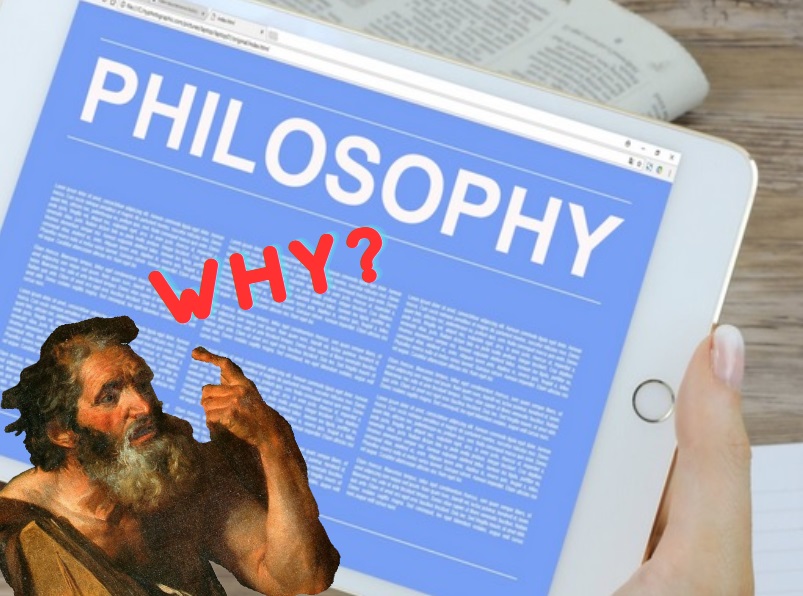
(Original Image by Peter Klubek CC-BY)
Welcome to Module 1: Introduction to Philosophy
In this module, you will introduce yourself to the class and to your instructor. Readings in this module address the value of philosophy, or why one might study philosophy in the first place.
Remember, as you progress through this course, it's OK to not understand everything in the readings. Philosophy is difficult. Instead of trying to understand everything perfectly, just do your best to understand the text on your own terms. Be mindful of your thoughts and feelings as you read, be open and kind to your classmates, cultivate good work habits, and do your best to express what you find in the text in your own words.
Upon completion of this module, you will be able to:
-
Establish the basic premises of a philosophically-informed context
To achieve these objectives:
- Read the Module 1 Introduction
- Read Chapter 1 section 1-4 in Readings in Western Philosophy for Louisiana Learners.
- Complete the assignment and discussion board.
Module Pressbooks Resources and Activities
You will find the following resources and activities in this module at the Pressbooks website. Click on the links below to access or complete each item.
-
-
 (Original image by Peter Klubek CC-BY)Epistemology, a foundational branch of philosophy, is a captivating exploration into the nature, scope, and limits of human knowledge. It delves into the fundamental questions surrounding how we come to know, understand, and justify our beliefs about the world. Epistemology investigates the criteria that differentiate justified true beliefs from mere opinion, and it scrutinizes the various sources of knowledge, such as perception, reason, memory, and testimony. By examining concepts like skepticism, certainty, and truth, epistemology challenges us to unravel the intricacies of our cognitive processes and to assess the reliability of our knowledge claims. This philosophical discipline engages with a diverse array of theories and viewpoints, ranging from ancient inquiries by Plato and Aristotle to modern investigations by Descartes, Hume, and beyond. In essence, epistemology invites us to embark on a profound journey of introspection and analysis, shaping our understanding of the intellectual foundations that underpin our engagement with the world.Upon completion of this module, you will be able to:
(Original image by Peter Klubek CC-BY)Epistemology, a foundational branch of philosophy, is a captivating exploration into the nature, scope, and limits of human knowledge. It delves into the fundamental questions surrounding how we come to know, understand, and justify our beliefs about the world. Epistemology investigates the criteria that differentiate justified true beliefs from mere opinion, and it scrutinizes the various sources of knowledge, such as perception, reason, memory, and testimony. By examining concepts like skepticism, certainty, and truth, epistemology challenges us to unravel the intricacies of our cognitive processes and to assess the reliability of our knowledge claims. This philosophical discipline engages with a diverse array of theories and viewpoints, ranging from ancient inquiries by Plato and Aristotle to modern investigations by Descartes, Hume, and beyond. In essence, epistemology invites us to embark on a profound journey of introspection and analysis, shaping our understanding of the intellectual foundations that underpin our engagement with the world.Upon completion of this module, you will be able to:- Demonstrate historical and contemporary perspectives on the nature and sources of knowledge of how different philosophers have grappled with questions of certainty, doubt, and skepticism.
- Examine the role of perception, memory, reasoning, and testimony in the formation of beliefs and knowledge claims, as related to their reliability and limitations.
To achieve these objectives:
- Read the Module 2 Introduction
- Read Chapter 2 sections 5-12 in Readings in Western Philosophy for Louisiana Learners.
- Complete the assignment and discussion board.
Module Pressbooks Resources and Activities
You will find the following resources and activities in this module at the Pressbooks website. Click on the links below to access or complete each item.
-
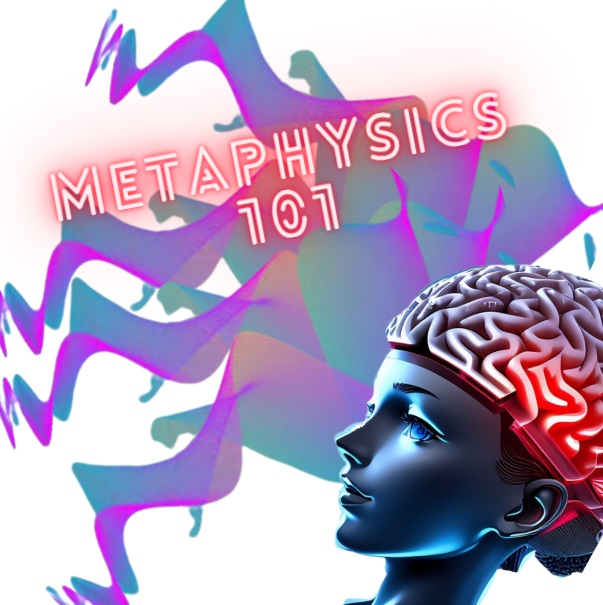
(Original Image by Peter Klubek CC-BY)
Today, some might think that atomism and Aristotle’s teleological view have evolved into a theory of cells that resolves the acorn-oak tree identity problem. The purpose, or ergon, of both the acorn and the oak tree are present in the zygote, the cell that forms when male and female sex cells combine. This zygote cell contains the genetic material, or the instructions, for how the organism will develop to carry out its intended purpose.
But not all identity problems are so easily solved today. What if the author of this chapter lived in a house as a child, and years later, after traveling in the highly glamorous life that comes with being a philosopher, returned to find the house had burned down and been rebuilt exactly as it had been. Is it the same home? The generic questions that center on how we should understand the tension between identity and persistence include:
-
Can a thing change without losing its identity?
-
If so, how much change can occur without a loss of identity for the thing itself?
This section begins to broach these questions of identity and self.
Upon completion of this module, you will be able to:
-
Apply the dilemma of persistence to self and identity.
-
Outline Western and Eastern theological views of self.
-
Describe secular views of the self.
-
Describe the mind-body problem.
To achieve these objectives:
- Read the Module 3 Introduction
- Read all readings in Chapter 3 in textbook
- Complete the Discussion board and the assignment
Module Pressbooks Resources and Activities
You will find the following resources and activities in this module at the Pressbooks website. Click on the links below to access or complete each item.
-
-
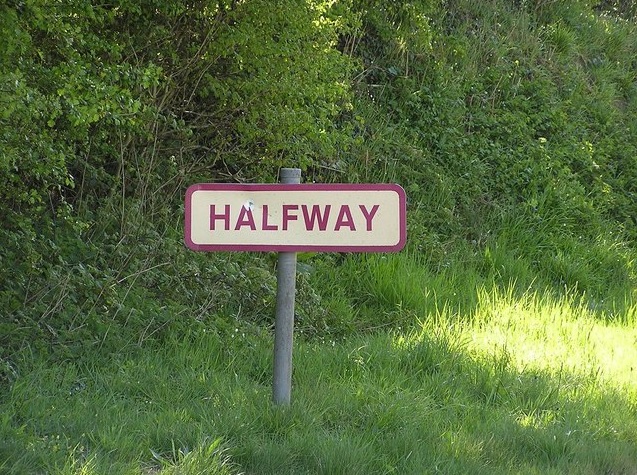
(Image by John Atherton. geogrpah.or.uk CC-BY-SA)
Upon completion of this module, you will:
Linked to course outcomes:
- Understand the different contexts and criteria for knowledge;
- Have developed an understanding of the relation of philosophy to other disciplines and areas of inquiry.
- Read and viewed the Midterm project instructions
- Prepared for and submitted your midterm assessment
To achieve these objectives:
- Read and view the contents of "Midterm Information and Instructions"
- Review the Midterm guidelines guidelines in this module and the syllabus to make sure you are ready. Click on and follow the instructions.
-
Midterm Project
Introduction to Philosophy
Purpose: To do a reflective commentary on the philosophical writings from the first half of the term
Linked to course outcomes:
- Understand the different contexts and criteria for knowledge;
- Have developed an understanding of the relation of philosophy to other disciplines and areas of inquiry.
-

(Untitled image St Anselm by Morris Meredith Williams (Anselm by Ethel Mary Wilmot-Buxton) [Public domain], via Wikimedia Commons CC-0)
Have you ever wondered about how religion could be thought of as a logical system of belief -- and how the ideas that undergird such systems are formulated in the first place? How does one form an idea of something that is not present? What is the nature of human religious belief?
If you've ever wondered these questions, then this learning unit, on philosophies of religion, should be of great interest.
Upon completion of this module, you will be able to:-
Be able to write philosophically on a variety of topics;
-
Understand the different contexts and criteria for knowledge;
-
Have developed an understanding of the relation of philosophy to other disciplines and areas of inquiry.
Unit objectives:
To understand the way that religion could be understood as lived experience and philosophical praxis
To understand the dialectic between western and non-western religious philosophy
To demonstrate an understanding of shared philosophical ideas (ontology, etc.) between multiple thinkers
To achieve these objectives:- Read the Module 4 Introduction
- Read Chapter 4 in the Open Educational Resource 'Intro to Philosophy' in its entirety. This chapter is on 'Philosophy of Religion.'
- Watch the introductory lecture on 'Philosophy of Religion'
- Complete the quiz, discussion board post, and essay associated with this unit.
Module Pressbooks Resources and Activities
You will find the following resources and activities in this module at the Pressbooks website. Click on the links below to access or complete each item.
-
-

(Image Courtesy of Billy Hathorn. Science and Technology Building at the University of Texas of the Permian Basin in Odessa, TX, CC-BY-SA)
The philosophy of science and technology is a captivating intellectual realm that delves into the profound interplay between human understanding of the natural world and the transformative innovations of our modern age. This philosophical discipline seeks to unravel the fundamental principles guiding scientific inquiry, the nature of scientific knowledge, and the intricate relationship between empirical observation and theoretical explanation. Moreover, it critically examines the ethical, social, and cultural implications arising from the rapid advancements in technology, from artificial intelligence to genetic engineering. By scrutinizing the methodologies, assumptions, and paradigms that underlie scientific and technological endeavors, the philosophy of science and technology invites us to reflect on the limits of human comprehension, the ethical dilemmas presented by new frontiers of knowledge, and the intricate tapestry of human progress in the face of ever-evolving innovation. It serves as a lens through which we navigate the complexities of our technologically driven world, fostering a deeper understanding of the forces shaping our perceptions, values, and aspirations.
Upon completion of this module, you will be able to:1. Demonstrate an understanding of the fundamental concepts and principles in the philosophy of science and technology.2. Examine the ways in which cultural, social, and historical contexts influence the practice of science and the development of technology.3. Evaluate the ethical dilemmas and moral responsibilities that arise from scientific research and technological progress.To achieve these objectives:
- Read the Module 5 Introduction
- Read Chapter 5 sections 29-34 in Readings in Western Philosophy for Louisiana Learners
- Complete the assignment and discussion board
Module Pressbooks Resources and Activities
You will find the following resources and activities in this module at the Pressbooks website. Click on the links below to access or complete each item.
-
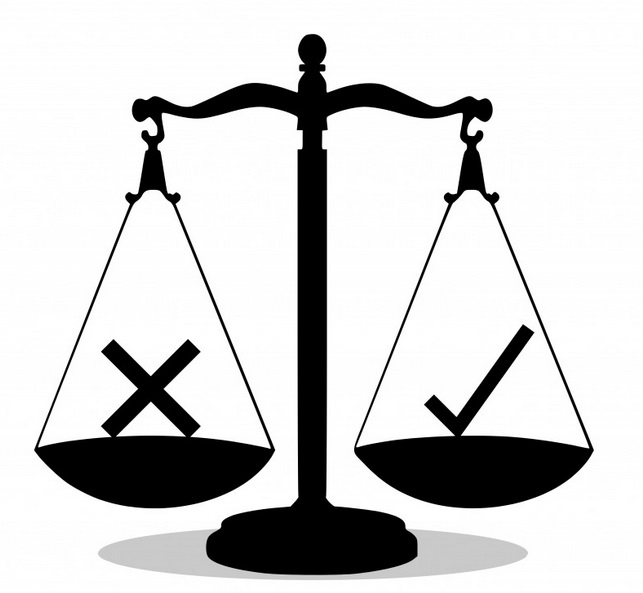
(Image from the public domain CC-0)
The question of how to act and the reasons to act (self-motivated? community-centered?) have vexed philosophers for centuries. This chapter contains a section of readings that mainly come from the British 18th- and 19th-centuries, with a selection from Greek philosopher Aristotle to start the unit.
As students and citizens in the world, you will no doubt have to make difficult decisions in your life and career. This chapter is important because the readings provide context and reasoning for those series of choices.
The more that you can find examples from the chapters, the more that these theoretical discussions of ethics and morals will resonate with you. Most of the readings are logical and sequential. They delve into definitional terms ('utility' and 'utilitarianism,' 'morality,' and more). As one of the final units, this chapter should culminate some of the points made on science and philosophy, art and aesthetics, and so forth, that have previously been covered.
Upon completion of this module, you will be able to:- Be familiar with the concepts of the various philosophers in the ethical tradition throughout the ages.
- Be able to write philosophically on a variety of topics.
To achieve these objectives:
- Read the Module 6 Introduction
- Watch the recorded lecture (see below)
- Do the discussion board post
- Take the quiz on ethics and morality (only major points from the Bentham, Mill, and the lecture will be on it). The quiz has six questions that must be answered in five minutes.
- Complete the media critique.
Module Pressbooks Resources and Activities
You will find the following resources and activities in this module at the Pressbooks website. Click on the links below to access or complete each item.
-
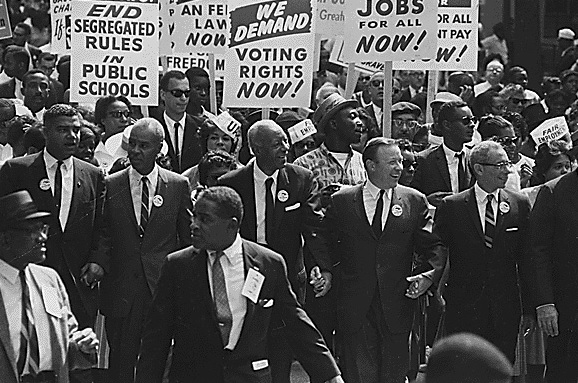
(Image courtesy Rowland Sherman. Civil Rights March on Washington DC 1963 CC-0)
Socio-political philosophy is a branch of philosophy that delves into the complex interplay between society, politics, and human nature. It seeks to understand the fundamental principles that underpin social organization, the nature of power, justice, rights, and the role of the individual within the collective. By exploring the intricate relationships between individuals and society, socio-political philosophy aims to shed light on the ethical, moral, and practical dimensions of governance, social structures, and human interaction.
Key Concepts:
-
Social Contract Theory: Many socio-political philosophers, such as Thomas Hobbes, John Locke, and Jean-Jacques Rousseau, explored the concept of a social contract. This theory suggests that individuals come together to form a society by mutually agreeing to surrender certain freedoms in exchange for protection, order, and the benefits of communal living.
-
Justice and Equality: Socio-political philosophy extensively addresses questions of justice and equality. Philosophers like John Rawls introduced the idea of the "veil of ignorance," wherein societal arrangements should be made without knowledge of one's own position, ensuring fairness and equal opportunities for all.
-
Rights and Liberty: The nature and extent of individual rights and liberties within society are core concerns of socio-political philosophy. These rights may include freedom of speech, religion, and assembly, as well as property rights. The tension between individual freedom and the common good is often explored in this context.
-
Power and Authority: Philosophers like Michel Foucault and Hannah Arendt critically examine the dynamics of power and authority. They explore how power structures operate, how they influence institutions, and how individuals can resist or challenge oppressive systems.
-
Political Ideologies: Socio-political philosophy delves into various political ideologies, such as liberalism, conservatism, socialism, and anarchism. These ideologies offer differing perspectives on the role of government, individual rights, economic systems, and the distribution of resources.
-
Civil Disobedience and Revolution: The ethical boundaries of civil disobedience and the conditions under which revolution is justified are subjects of debate. Thinkers like Henry David Thoreau and Martin Luther King Jr. have explored the moral implications of resisting unjust laws.
-
Multiculturalism and Identity: Socio-political philosophy also engages with issues of multiculturalism, identity, and cultural pluralism. It addresses questions of cultural recognition, minority rights, and how societies can accommodate diverse perspectives.
Significance:
Socio-political philosophy is of immense significance as it prompts critical reflections on the structures and norms that shape our societies. It challenges us to question the status quo, consider alternative systems, and evaluate the ethical implications of our choices. By studying socio-political philosophy, individuals can gain a deeper understanding of the historical, philosophical, and ethical foundations that inform political decisions and social interactions.
In essence, socio-political philosophy invites us to engage in thoughtful discourse about the principles that guide our collective lives. It encourages us to examine the intricate web of power, justice, and governance, and to contemplate how our beliefs and actions contribute to shaping the societies in which we live. As you embark on your exploration of socio-political philosophy, you will encounter a rich tapestry of ideas that continue to influence our understanding of the world around us.
Upon completion of this module, you will be able to:
Comprehend the key concepts and philosophical ideas that underpin sociopolitical structures.
Examine the ethical and normative foundations of sociopolitical theories and their implications for justice, rights, and social change.
To achieve these objectives:
- Read the Module 7 Introduction
- Read Chapter 7 sections 42-50 Readings in Western Philosophy for Louisiana Learners
- Complete the assignment and discussion board.
Module Pressbooks Resources and Activities
You will find the following resources and activities in this module at the Pressbooks website. Click on the links below to access or complete each item.
-
-

(Thomas Cole. Genessee Scenery. 1847. Courtesy of Rhode Island School of Design)
Art and Aesthetics: A Brief Guide
For the nature painting above, how does one discern whether the work is 'good' or not? The painter had to depict a set of objects in the natural world (imitation-Plato). How do the representation of objects appeal to certain standards of taste and beauty (Hume)? Does the painting produce a sensory effect that is 'pleasant,' and does that pleasantness correlate to a particular sensation or aesthetic experience (Kant)? Do the waterfalls in the painting produce a resultant impression of awe and wonder akin to the 'sublime' (Burke?
In the Pressbooks course readings, do read the introduction to 'Art and Aesthetics,' consider the larger points being made in subjective vs. universal notions of beauty, and try to think how the philosophers notions of beauty and taste may relate to and differ from one another.
Upon completion of this module, you will be able to:
Unit outcomes:
-
Demonstrate an understanding of the concepts of the aesthetic philosophical traditions.
- Write philosophically on a variety of topics related to art and beauty.
To achieve these objectives:
- Read the 'Art and Aesthetics' chapter in the Pressbooks text navigation to the left (Hume, Plato, Kant, Burke)
- Watch the recorded unit video.
- Complete the forum post.
- Complete the art and aesthetics assignment.
Module Pressbooks Resources and Activities
You will find the following resources and activities in this module at the Pressbooks website. Click on the links below to access or complete each item.
-
-

(Image Courtesy of flikr/ CC-BY-SA-2.0)
Linked to course outcomes:
- Understand the different contexts and criteria for knowledge;
- Have developed an understanding of the relation of philosophy to other disciplines and areas of inquiry.
- Read and viewed the Final Exam project instructions
- Prepared for and submitted your Final Exam assessment
To achieve these objectives:
- Read and view the contents of "Final Exam and Instructions"
- Review the Final Exam Guideleines guidelines in this module and the syllabus to make sure you are ready. Click on and follow the instructions.
